Rekha will soon be seen playing Super Nani but the icon turns into an age-defying model in the film to teach her errant family a lesson. No, dowdy weepies for the lady.There are many faces of Bhanurekha Ganesan. The little girl who danced on a table in a white frilly frock to the tune of aayi hai baharein mite zulmo sitam in Dilip Kumar’s Ram Aur Shyam. The child star of the Telugu film Rangula Ratnam (1966), the plump young debutante of Sawan Bhadon (1970) who had already worked in an unreleased Hindi film called Suhana Safar with Biswajit, had been tricked into kissing him for a scene and had seen that image being splashed all over the Asian edition of Life magazine.
**
A girl who had raw talent but no clue about how to dress and stand out in a bunch of wildly successful heroines like Mumtaz and Hema Malini and who was perhaps traumatised by the exploitative callousness with which the Hindi film industry treated vulnerable teenaged girls. She once said in an interview how much she hated that time, how all she wanted was to go home and never come to a film set. The lack of love and acceptance experienced as the love child of a famous father can only be speculated upon but it is obvious from her initial struggle to find her feet in Bombay that she felt alone most of the time. A short-lived rumoured marriage with Vinod Mehra, then a rumoured attempt to end her life that was later explained away as food poisoning and playing truant on film sets was possibly her way of trying to make sense of the unreal world of cinema and dealing with it. Magazines had once reported that Hrishikesh Mukherjee was so furious with her unprofessionalism on the sets of Namak Haram (1973) that he chopped her scenes but promised the contrite actor that he would make a film for her the day she became worthy of it. But we are digressing.
**
Then there was the Rekha who reinvented herself not just as an actor but as a woman. From a teenaged girl who hated the artifice of sequinned clothes and make-up, wanted to eat ice-cream and never worry about her weight, she became militantly disciplined about beauty and health regimens. There were pictures of her doing Yoga and stories about the make up tricks she learnt to gave herself those perpetually accentuated lips and classic features. A lot obviously changed within too. She became serious about her craft. This Rekha surprised everyone. The audience and the film makers. One of the first glimpses of what she was capable of came in the film Imaan Dharam (1977) where she stood out in an ensemble cast of many superstars as a sultry, fiery Tamilian though her rather overdone dark make-up was a bit off.
**
The defining moment in her career was Ghar (1978), a film by Manek Chatterjee where she played a housewife who is kidnapped and brutalised while coming home from a late night film show. This was the film that not only showed us the wordless rage and fear and violation that a rape survivor goes through for no fault of hers but also just how deep Rekha was as a performer, the reserves of pain and courage and light and sorrow that she could draw from when she wanted to not just act but to breathe a character.
**
Some believe it all began with Do Anjaane, the 1976 Dulal Guha film where she found love. The film adapted from Nihar Ranjan Gupta’s Bengali novel Ratrir Yatri, allowed Rekha the creative space to play an ambitious, materialistic wife who puts the mysterious death of her husband (Bachchan) behind her and allows his friend (Prem Chopra) to fulfil her ambition to be a movie star. Rekha was watchable not just because she was playing a grey heroine, a rarity in those times but because despite all the things she messed up, you could see why the two men in the film were crazy about her. She was undeniably sensuous, with a rapturous cloud of dark hair and molten lava eyes and a nervous aggression always ready to bite any man who dared to cross her.
**
The rest is pure magic. And there was no looking back. There was something absolutely mysterious and magical about the chemistry Rekha shared with Bachchan. You saw glimpses of it in Do Anjaane where Rekha as the new bride is watching in disgust her apologetic new husband (Bachchan) as he tries to shore up an unhinged bathroom door.And then later when the tables have turned and he is a powerful, mysterious stranger and she.. just a film actress, sick of her career and her suffocating lover, you sensed something between them that was loathing, fear, pain and inexplicable attraction that would survive everything.
**
It was like a bolt of energy, this thing between the two. You saw it in many many films..in Muqaddar Ka Sikander (in 1978) where now a staggeringly beautiful Rekha played Zohra Bai, interpreting the sacrificing Chandramukhi for a new audience. Her eyes streamed pain and unrequited love while Bachchan’s Sikandar kept shedding blood and tears over his lost childhood love. Watch her death scene in his arms. In a less than perfect film, the two turn a few gasps, broken pleas and an impassioned goodbye into a spectacle of heart-breaking beauty.
**
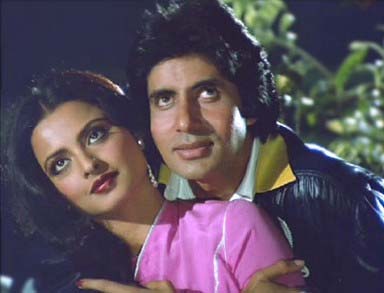
Their songs together. Even in films other than Silsila. In Suhaag (1979). In Mr Natwarla (1979). In Ram Balram (1981). They were in perfect synchronicity. A conspiratorial smile, a locked gaze oblivious to the world, a nod, an instinctive, elemental joy in each other and you knew it wasn’t all just for the camera. Their chemistry wasn’t the kind a choreographer can conjure up. And then Silsila (1981) ofcourse. It was not an easy shoot for Rekha but noone would have guessed it. Who would have thought that the overweight Sawan Bhadon girl would melt into the definitive Yash Chopra heroine one day. Her Chandni had moonlit hair, poetic eyes, occasional outbursts of anger but mostly helpless passion for a man from her past. I still wonder how they pulled off Rang Barse with as much ease as they did considering who was present on the sets. This is possibly the most sensuous film in its genre and not because it had blatant in your face intimacy but because even when the two lovers looked at each other, we gasped. They turned every conversation, every embrace, every eyelock into a private moment into which we were intruding. But Silsila, possibly the peak of Rekha’s glamourous persona would come later. Before that she would surprise us again and again with new facets of her talent.
**
There was Khoobsurat (1980), the film Hrishikesh Mukherjee had promised her all those years ago. In Khoobsurat, there was no trace of the sensuality she could unleash with just a lowered gaze. Here she was a regular young girl of the 80s in occasional sarees. Easily mixing western skirts and fitted T-shirts with two long plaits, free spirited humour with duty bound conscientiousness . A no nonsense watch on her slim wrist, a naughty glint in her eyes, a playful, unladylike walk and the knack of melting ice and breaking down walls of reserve. You could also see just how deeply she had internalised Bachchan in the way she used some of his mannerisms in her dialogue delivery and in the song, “Saare niyam tod do.”
**
In Shyam Benegal’s art house gem Kalyug (1981), she reinterpreted Draupadi with a taut bitterness and almost frightening self-absorption. In Govind Nihalani’s Vijeta (1982), she played Neelima, a middle-aged mother of a troubled young son (Kunal Kapoor) and this nuanced performance given at the peak of her success, shows how fearless she was when it came to making unsafe creative choices. One wonders how well she would have done if the Benegals and Nihalanis had given her more films. But someone did give her the film that would sum up her entire career in one word, Umrao Jaan.
**
In the beginning of her career, no one would have thought her worthy of a film of this scale. But this was the reinvented Rekha who had willed herself to speak Urdu like one to the manner born, who with the magic dust of Gopi Krishna sprinkled over her, would dance like a living flame in stately Lucknowi havelis, who would express each nuance of Shahryar’s poetry with one tear beaded glance, a face that was a monument to an unlived life and unexpressed pain. Umrao was made for her and she was made for Umrao. Up against Jennifer Kapoor’s brilliance in 36 Chowringhee Lane, she won the National Award, forever silencing those who had never expected her to come this far.
**

We saw glimpses of the poised actor she really is in Gulzar’s Ijazat (1988), Yash Chopra’s Faasle (1985) and Benegal’s Zubeida (2001), there was the phase with crowd pleasing hits with Jeetendra (Judai, Ek Hi Bhool and counting), the many profiles of a temptress she played in Utsav (1984), Aastha (1997) and Kama Sutra (1996), the avenging angel baying for blood in films like Phool Bane Angaarey (1991) and Khoon Bahari Maang (1988) and the embarrassing caricatures (Madam X, Khiladiyon Ke Khiladi and Bach Ke Rehna Re Baba). And ofcourse her own life, unspooling like a film all along. But then that trivia does not even begin to define who Rekha really is.
**
Over the last few years, some of the best performances she has given have been off the big screen. At award shows where she creates squirm worthy moments even if she is just called to give away an award. Sometimes she talks in a little girl voice. Sometimes she is calm and centered and poetic. And always there is the big question hanging in the air, “What will she do next?” That a woman who is going to be 60 next year and has been in films for over 40 years can still create so much curiosity even though her film career has not seen a big ripple in years, says one thing in no uncertain terms. That the role of a lifetime Rekha has played has been that of Rekha. An enigma no one can quite fathom. And it is clear that she likes it that way. October 10 was her birthday and we can be sure, Rekha is not done with reinventing herself. She is possibly looking at a mirror right this minute and asking herself. “So what shall I be next?”
**
 with The New Indian Express Reema Moudgil works for The New Indian Express, Bangalore, is the author of Perfect Eight, the editor of Chicken Soup for the Soul-Indian Women, an artist, a former RJ and a mother. She dreams of a cottage of her own that opens to a garden and where she can write more books, paint, listen to music and just be.
with The New Indian Express Reema Moudgil works for The New Indian Express, Bangalore, is the author of Perfect Eight, the editor of Chicken Soup for the Soul-Indian Women, an artist, a former RJ and a mother. She dreams of a cottage of her own that opens to a garden and where she can write more books, paint, listen to music and just be.






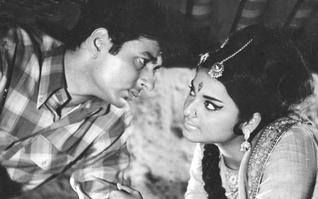
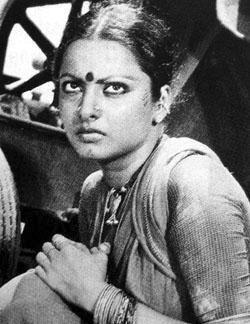
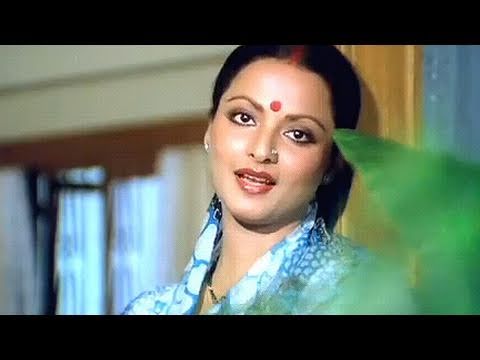


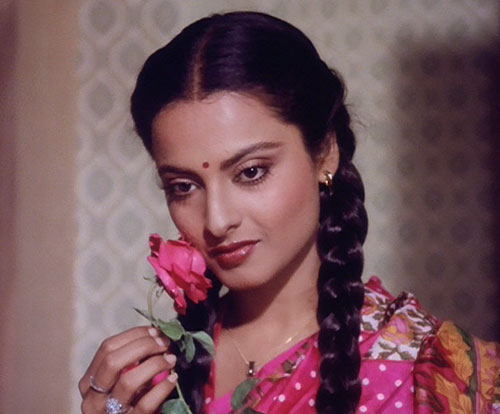

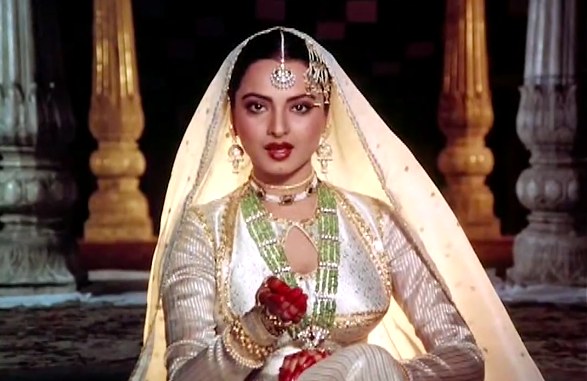

Enjoyed reading this!!